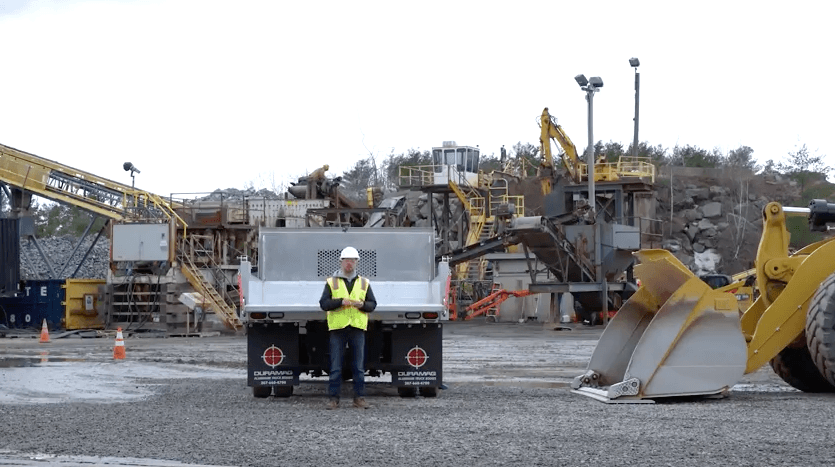Introduction
If you’ve been following the DuraMag® website, you know that aluminum may be lighter than steel, but it’s also more durable. Aluminum is used on everything from military vehicles to skyscrapers. It’s incredibly high-strength, in fact “every aluminum-intensive vehicle ever crash tested by the National Highway Traffic Safety Administration has earned a 5-star safety rating.” (www.aluminum.org) We’ve chosen to craft our truck accessory products from aluminum for the past 20 years because it’s 1/3 the weight of steel, which allows us to make stronger more dense structures while still reducing a vehicles weight. This allows our customers to carry more payload and save money and time for their businesses. Get the facts when deciding between aluminum vs. steel and explore the DuraMag durability test.
The Facts: Aluminum vs. Stee
Put simply, there just aren’t many benefits to using steel these days. For starters, heavy steel doesn’t always work on lightweight chassis. Plus, the added cost of hauling heavier truck bodies around adds up; steel simply isn’t the best choice anymore for your work truck. Not convinced? Steel also means increased greenhouse gases, more maintenance overtime due to rust, and unsightliness with age.
Did you know? In most cases, aluminum truck bodies weigh about 40% less than steel bodies. When every pound that you aren’t hauling in the body is a pound you can increase your payload by, this means serious cost savings over time. This is important to everyone moving cargo because increased payload translates to significant savings. Just think: fewer trips to deliver the same amount of product for your business, more on-time deliveries with the same fleet and potential for fewer labor hours worked every week.
Furthermore, Aluminum truck bodies are easier to repair than steel. Body shops are more equipped to weld Aluminum due to the huge increase in Aluminum being used in trucks and cars. When it comes to cutting out a damaged component, Aluminum is also significantly easier to cut. Best yet, there isn’t any paint that will need to be removed prior to welding like there is with steel bodies.
DuraMag® Durability Test
We put our DuraMag truck bodies to the test and videotaped our durability experiment for proof. Whether you’re working with sand, gravel, small rocks, or large rocks, our truck bodies can handle it.
Our test proved that DuraMag® truck bodies can handle the following:
- A serious amount of sand, with zero signs of damage
- A bucket load of gravel, with no damage
- A load of 3” stone, with no signs of damage
- A tractor bucket full of 6-8” rock, with minor dents to the bed
- A bucket of 2’ rock chunks, with dents and minor gouges. Zero signs of damage to the tailgate.
According to Forbes.com, aluminum actually has better properties for dent and ding resistance (than steel)… (furthermore) you can also up-gauge it another tenth of a millimeter and still save 40 percent of the weight… Aluminum being a third as dense as steel, you can have three times the thickness before you have the same weight as steel.
Need more convincing? DuraMag® offers all these standard features at the same price or lower price than your typical steel truck or van body:
- Big price advantage over steel
- Best warranty in the industry
- Better fuel economy
- Less wear/tear on the vehicle
- NO rust
- Higher resale value
- Increased payload – less labor, fuel, wear/tear
- Superior company image
- Environmentally more friendly
- Easier to repair
Summary
From everyday applications to spaceships used by NASA, aluminum is trusteed for it’s incredible strength and durability throughout a huge variety of applications. According to aluminum.org, the U.S. Air Force “replaced older wood, steel, wire and fiber aircrafts during WWII, (with) high-strength aluminum alloys, (which) have become among the most commonly used materials to make military aircraft. Indeed, the airframe for the famed fighter jet – the F-16 – is 80% aluminum.” At DuraMag, we’re confident our truck bodies can handle the tough jobs your business needs them to, while also saving you costs.
Read what else we have to say about switching from steel to aluminum »